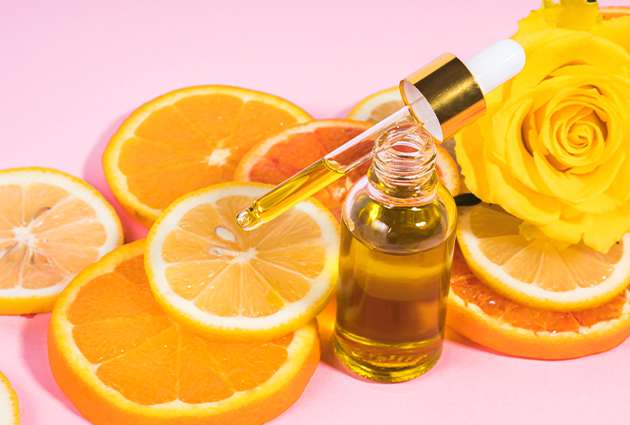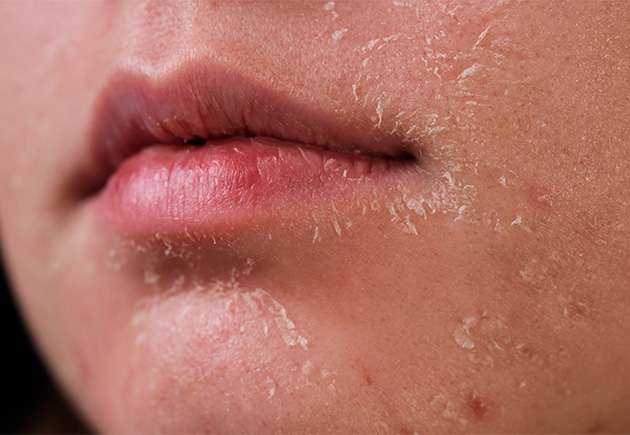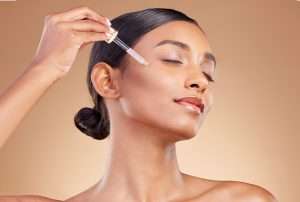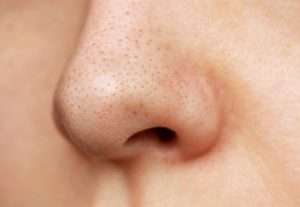Retinol: Uses, Benefits, and More

Retinol, a renowned skincare ingredient, is celebrated for its exceptional ability to combat the visible signs of ageing. Derived from Vitamin A, it stands as the benchmark in the world of anti-ageing solutions. Nevertheless, while its effectiveness is well-established, Retinol remains a multifaceted element in skincare, available in various concentrations. Amid its widespread popularity, myths and misconceptions often cloud our understanding of this ingredient. Join us on a journey to uncover the intricate scientific details behind this highly regarded anti-ageing solution.
Related Product – Retinol Cream
Related Product – Retinol Dewy Serum
Understanding Retinol: The Science Behind It
Retinol, a derivative of Vitamin A, plays a crucial role in promoting cell turnover and accelerating collagen production in the skin. It’s important to note that Retinol isn’t a catch-all term for all Vitamin A derivatives; the broader category is known as Retinoids, encompassing both natural and synthetic variants.
The debutante in the retinoid market was Retin A or Tretinoin, available only by prescription. It was initially championed for its ability to combat acne and reduce the appearance of fine lines and wrinkles on face. However, it came with a caveat – the infamous skin-purging phase. During this transition, users experienced flakiness, dryness, skin irritation, and the emergence of bumps. Thankfully, these side effects tend to subside as the skin builds tolerance to tretinoin.
The Mechanism Behind Retinol’s Effectiveness
Retinol doesn’t work its magic solo; the transformation begins when it converts into retinoic acid, the sole form of Vitamin A absorbable by the skin. This conversion unfolds in stages:
Retinol esters → 2. Retinol → 3. Retinaldehyde → 4. Retinoic Acid
In simpler terms, the farther a form of Vitamin A is from retinoic acid in this conversion chain, the gentler it is on the skin. Consequently, derivatives like Tretinoin and Retinaldehyde deliver quicker anti-ageing results, while Retinol and Retinyl Palmitate necessitate a longer duration to manifest their effects.
Retinol elevates the skin’s regenerative capabilities by accelerating cell turnover. It’s a proven ally in improving skin tone, texture, hyperpigmentation, acne, and fine lines. This remarkable ingredient stimulates collagen synthesis and serves as a shield against post-inflammatory hyperpigmentation.
The Key Benefits of Retinol: Exploring the Top 5
Retinol serum benefits are numerous, but five primary reasons drive people to choose and incorporate it into their skincare routines. Let’s look into these compelling skin benefits of retinol:
1: Retinol for Acne Management
Struggling with persistent acne that refuses to budge? Retinol for skin could be your solution. Its pore-decongesting properties effectively clear the skin and reduce the likelihood of future breakouts. Naturally, fewer acne flare-ups mean fewer scars. If you’re exploring products designed to target this benefit, consider examining retinol options tailored for acne scarring. Moreover, retinoids can enhance the effectiveness of other medicated creams and gels, ensuring you reap the full retinol benefits for skin of your chosen treatments.
2: Retinol for Anti-Ageing
Retinol takes the spotlight as one of the most widely utilized and extensively researched anti-ageing ingredients available today. Although it was initially introduced as an anti-acne remedy in the 1970s, tretinoin, a form of retinol, swiftly revealed its remarkable anti-ageing prowess.
Its efficacy in treating fine lines and wrinkles, and promoting youthful skin texture has made it a go-to choice for countless individuals seeking to combat the signs of ageing. With decades of research backing benefits and retinol serum uses it has certainly remained a trusted ally in the pursuit of timeless, age-defying skin.
3: Retinol for Enhanced Skin Tone
Retinol’s multifaceted benefits include its capacity to kickstart skin cell turnover, resulting in an almost “exfoliating” effect. As it sweeps away dullness and dryness, it paves the way for fresher, brighter, and more evenly toned skin. This rejuvenated skin boasts elevated levels of collagen and elastin, rendering it stronger, smoother, and less prone to imperfections. Even if your skin appears relatively “problem-free,” retinol can work effectively, leaving you with a radiant complexion that exudes vitality.
4: Retinol is Cost-Effective
While contemplating your budget, allocating funds for retinol may appear extravagant at first glance. Nevertheless, opting for cheaper, short-term solutions could ultimately prove to be a more costly endeavor. Retinol skin cream and serum stand apart as one of the select ingredients supported by solid scientific evidence, cementing its status as a prudent investment for your skin’s future.
At Plix, we offer the Pomegranate Youth Renewal Dewy Serum—a beginner-friendly option priced at just Rs. 499. This modest investment guarantees proven results! Retinol & Bakuchi Oil in the serum collaboratively slow down visible signs of ageing, this skin hydrating serum enhances skin elasticity, reducing fine lines and wrinkles, while Pentavitin in the serum ensures profound moisturization. With these compelling benefits in mind, retinol’s cost-effectiveness becomes even more evident.
5: Retinol Promotes a Youthful Glow
In addition to its well-documented antiaging serum, retinol bestows a radiant and youthful glow upon your skin. By encouraging healthy cell turnover, it helps shed dull and tired skin, revealing a fresher, more vibrant complexion. This luminosity adds a touch of natural radiance that can make you look and feel more youthful and revitalized. So, when it comes to achieving that coveted youthful glow, retinol is a trusted ally.
Related Article – The Ideal Anti-Ageing Skincare Products to Keep You Looking Young
How to Use Retinol for Best Results?
To harness the full potential of retinol’s skin-enhancing properties, it’s crucial to use it correctly. Unfortunately, many individuals misuse retinol, inadvertently causing harm to their skin. Here’s a step-by-step guide on how to use retinol effectively:
Nighttime Application:
Retinol serum for face should only be used at night. Incorporate this ingredient into your nighttime skincare routine for optimal results.
Gentle Cleansing:
Start by cleansing your face with a mild, non-active face wash to remove dirt and impurities.
Hydrating Toner:
Apply a hydrating toner without active ingredients to replenish moisture levels and prepare your skin for retinol.
Retinol Application:
Take a pea-sized amount of your chosen retinol serum or cream and apply it evenly to your face. Don’t forget to extend it to your neck, as this is where signs of ageing often appear first.
Layer of Moisturizer:
Follow up with a layer of Retinol moisturizer or a soothing facial oil to further minimize the potential for irritation. Consider using Plix’s Pomegranate Youth Renewal Night Cream, enriched with Retinol, Bakuchi Oil, and Pentavitin, to reduce signs of ageing. This retinol night cream promotes skin hydration and enhances radiance.
Moderation Is Key:
Less is more when it comes to retinol. Applying excessive amounts won’t enhance its effectiveness and may lead to skin irritation. Start with a small amount and observe how your skin responds.
Monitor Your Skin:
Pay close attention to your skin’s reaction while using retinol. Some individuals may experience skin purging or other side effects. If your skin becomes intolerant, consider switching to a lower concentration or a gentler Vitamin A derivative within the retinoid family.
By following these guidelines and using retinol mindfully, you can maximize the benefits retinol serum while safeguarding your skin’s health and appearance.
When is the Optimal Time to Begin Using Retinol?
Traditionally, the early 30s were considered the ideal age to introduce retinol into your skincare routine. However, experts now recommend starting earlier, specifically in your mid to late 20s. This earlier initiation allows you to harness the full range of retinol’s benefits, primarily in the prevention of premature ageing.
The modern lifestyle, marked by high levels of stress, prolonged exposure to blue light from screens, and extensive sun exposure, has accelerated the ageing process of our skin. Hence, commencing a retinol regimen in your mid to late 20s is a proactive approach to combat these premature signs of ageing.
Remember, prevention is often more effective than correction when it comes to maintaining youthful, radiant skin. So, the sooner you start incorporating retinol into your skincare routine, the better equipped your skin will be to defy the effects of time and external stressors.
The Takeaway
As we age, changes in our skin are entirely normal. Pimples and wrinkles are experiences almost everyone goes through at some point in their lives. Fortunately, there are numerous treatments available to address concerns about the appearance and texture of your skin. If you are still wondering whether retinol good for skin or not! You need to know retinol is one such ingredient known for its effectiveness in promoting clear and plump skin.
It’s important to note that the results from retinol may not be immediate; it often takes several weeks before you begin to notice visible improvements. In some cases, your skin might even appear worse before it gets better, so it’s essential not to be discouraged. The key is to start your retinol journey slowly and gradually increase your usage to allow your skin to adjust and maximize the benefits over time.
FAQs
What does retinol do to your skin?
Retinol, a derivative of Vitamin A, offers several benefits for your skin. It stimulates collagen production, accelerates cell turnover, and helps in reducing the signs of ageing, such as fine lines and wrinkles. Additionally, it can improve skin texture, even out skin tone, and promote a radiant complexion.
Is retinol OK to use daily?
The frequency of retinol use depends on your skin’s tolerance and the concentration of retinol in the product you’re using. Beginners are often advised to start with lower concentrations and use it a few times a week, gradually increasing usage as their skin adjusts. For some, daily use might be suitable, but it’s essential to monitor your skin for any signs of irritation and adjust your routine accordingly.
Which retinol is suitable for beginners?
Retinol products come in various concentrations. Beginners are recommended to start with lower concentrations (around 0.25% or lower) to allow their skin to acclimate to the ingredient. A great option for beginners is our Pomegranate Serum, one of the best face serums which contains a gentle yet effective level of retinol. As tolerance builds, you can gradually move to higher concentrations, always being mindful of how your skin responds to ensure a comfortable and effective skincare routine.
Does retinol brighten skin?
Yes, retinol can contribute to brighter skin. By accelerating cell turnover and reducing the appearance of dark spots and hyperpigmentation, it can lead to a more even skin tone and a radiant complexion.
Do you leave retinol on overnight?
Yes, retinol is typically applied at night as part of your nighttime skincare routine. It works best when left on the skin overnight, allowing it to penetrate and provide its benefits while you sleep.
Should I use moisturizer after retinol?
Yes, it’s highly recommended to use a moisturizer after applying retinol. Retinol face cream can sometimes cause dryness or irritation, so using a moisturizer helps keep the skin hydrated and minimizes potential side effects.














